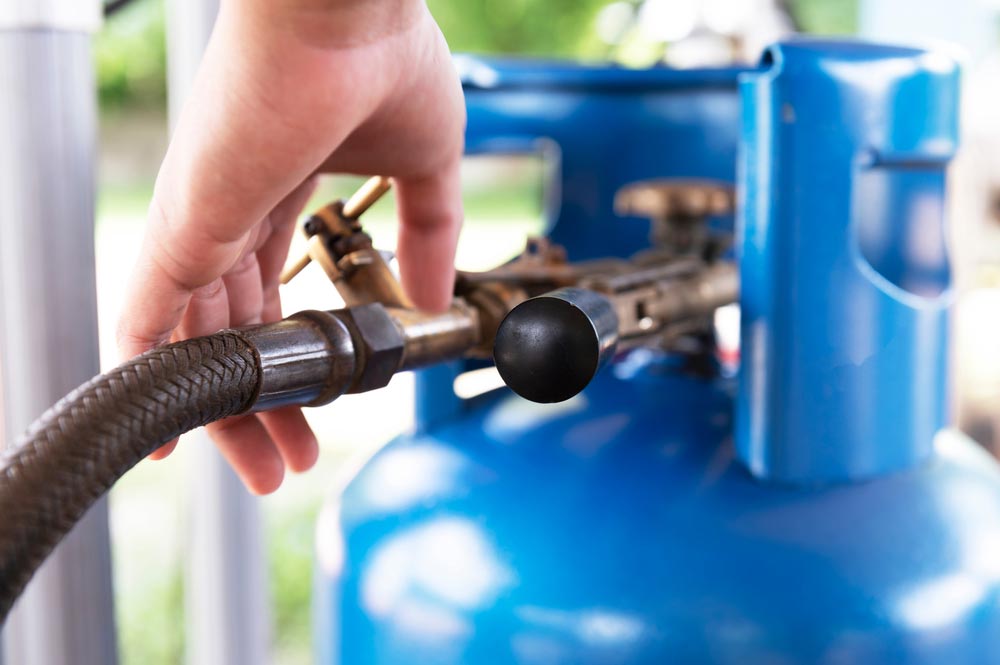BLOG >
What Is LPG Gas? Professional Gas Fitting Guide
Liquified Petroleum Gas (LPG) offers a reliable, mobile source of energy for residential and commercial settings, but many of us don't know much about LPG, how it's sourced and what benefits it carries. Here, we unpack everything you need to know about LPG and what it might add to your home or property.
Table of Contents
What is LPG?
LPG is formed as a by-product of natural gas, coal, and other fossil fuels. It's flammable and largely propane-based. Although it never forms in isolation, it's still labelled a low-carbon fossil fuel. As it's a by-product, LPG is a dense gas and needs to be pressurised to form a liquid that is easily and safely transported in cylinders.
What's the difference between LPG and natural gas?
The main distinction between LPG and natural gas lies in the way each is sourced and supplied. LPG is derived from natural gas and transported as a liquid in canisters to customers. In contrast, natural gas is sourced from underground reservoirs and can be transported as a gas via underground gas mains.
Natural gas is well-suited to powering heating and hot water systems of larger homes, while LPG is better suited to fuelling smaller appliances with a clear connection point, like a barbecue or a stovetop. It also offers more consistent fuel, as it creates more heat than natural gas.
What are the benefits of LPG?
There are many advantages of using LPG:
- Convenience and efficiency: LPG can be easily transported, stored and heated, making it a consistent gas supply, particularly when cooking on a barbecue.
- Reduced greenhouse gas emissions: As a low-carbon energy source, LPG produces fewer greenhouse gas emissions than other sources.
- Easy access: As LPG can be easily transported, remote or rural clients can still access gas sources.
- Cheap operation: It might be cheaper to use LPG, as you'll only need to pay for refills when you need them. You can also monitor how much gas you are using for your appliances.
Are there any disadvantages of LPG?
The disadvantages of LPG mainly lie in its storage and safety. Storing LPG requires strong tanks and cylinders which keep the gas at high pressure, and there is a risk of LPG cylinders exploding and causing damage to life and property. It's also not always easy to detect an LPG leak. While it's important to be aware of these disadvantages, LPG still presents itself as a reliable, cost-effective and efficient energy source for homes and businesses.
LPG is commonly used in cooking and barbecuing. It's easily transportable and mobile, making it a perfect heat source for your outdoor cooking. You'll easily be able to move your barbecue around your garden or entertaining space to perfectly suit your needs, and can easily refill or replace your cylinders at your local petrol station. This gas heats up instantly, without much preparation, and doesn't need any clean-up afterwards, so it's the ideal choice for all your barbecuing and grilling needs.
Get in touch
For quality gas fitting solutions, contact our team at Mid Richmond Plumbers & Suppliers. We prioritise a high standard of workmanship and quality customer service our valued clients have come to know and love.
With our licensed team, advanced equipment and technology, and efficient, affordable plumbing and gas fitting solutions, we'll guarantee we can meet all your gas fitting, installation and supply needs.
Contact us today on (02) 6683 2281 to speak to our friendly team and to learn more about our fantastic range of services.









